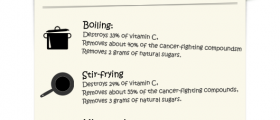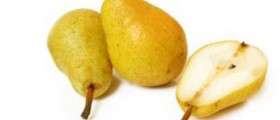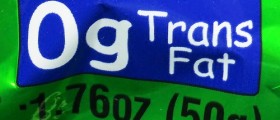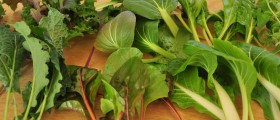
Information on Onions
Onions are in integral part of numerous recipes virtuallyeverywhere around the world. Onions have been used as a food item ever sincethe times of the Bronze Age, which is more than 7000 years. They are among theoldest types of vegetables known to mankind. Onion comes from the family oflilies just like it relative garlic. It is known by its botanical name ofallium cepa. Nowadays, there are more than 600 different species of onion cultivatedall around the globe, because it is an important ingredient in variouscuisines. When a person cuts onions, he or she tends to weep because of thesulphide compounds which get released from the onions. Onions are grownunderground and they come in various tastes so they can be sweet, pungent andsometimes even tangy.
Red Onion's Nutritional Value
Red onions are commonly included in different salads, meatdishes, barbecue, sandwiches, stews, hamburgers, soups and other recipes. Aserving of 160 grams of fresh chopped red onions contains 64 calories, 1.76grams of proteins, 16 grams of total fat, 6.78 grams of total sugars, 14.94 gramsof total carbohydrates, 2.7 grams of dietary fiber and 11.8 milligrams ofvitamin C. Red onions also contains vitamin A, fluoride, vitamin B12, zinc,beta carotene, magnesium, folate, iron and calcium.
White Onion's Nutritional Value
White onions are a variety that is sweeter than the red onesbecause they contain plenty of water. They are commonly consumed in their rawform and they are often incorporated in hamburgers, soups and salads. Whiteonions are very low on sodium, cholesterol and saturated fats. A serving of 100grams of white onions contains 32 calories, 5 grams of total sugars, 91.24grams of water, 0.08 grams of fat content, 0.8 grams of proteins and 0.9 gramsof dietary fiber. Other important nutrients contained in the white onionsinclude potassium, carotene, calcium, choline, phosphorus, folate, selenium,vitamin B6, panthothenic acid, vitamin C, niacin, riboflavin and thiamine.
Green Onion's Nutritional Value
Green onions are uprooted earlier than their othercounterparts. They are commonly used in salads, meat dishes, baking and soups. Aserving of 100 grams of green onions contains 27 calories, 5.02 grams ofsugars, 91.24 grams of water, 7.55 grams of carbohydrates, 0.8 grams ofproteins, and 0.08 grams of total fat. Green onions are also an excellentsource of calcium, valine, iron, tyrosine, magnesium, phenylalanine,phosphorus, lysine, potassium, threonine, manganese, tryptophan, zinc, choline,selenium, folic acid, vitamin C, folate, vitamin D, vitamin B6, vitamin K,niacin, riboflavin and thiamine.
Yellow Onion's Nutritional Value
Yellow onions are a common ingredient in numerous salads,barbecues and sandwiches. A serving of 160 grams of yellow onions contains 64calories, 2 grams of proteins, 1 gram of total fat, 7 grams of sugars, 3 grams of dietary fiberand 15 grams of total carbohydrates. Yellow onions are also excellent sourcesof vitamin A, vitamin K, vitamin C, vitamin E, iron and calcium.
Cooked Onion's Nutritional Value
A serving of 100 grams of boiled, drained and cooked onionscontains 44 calories, 4.73 grams of sugars, 87.86 grams of water, 1.4 grams oftotal dietary fiber, 1.36 grams of proteins, 10.15 grams of carbohydrates and0.19 grams of total fat content. Cooked onions are also rich in calcium,histidine, iron, aginine, magnesium, valine, phosphorus, tyrosine, potassium,phenylalanine, sodium, cystine, zinc, methionine, copper, leucine, manganese,isoleucine, selenium, threonine, vitamin C, tryptophan, thiamine, betacarotene, riboflavin, folate, niacin, vitamin B6 and pantothenic acid.

















Your thoughts on this
Loading...